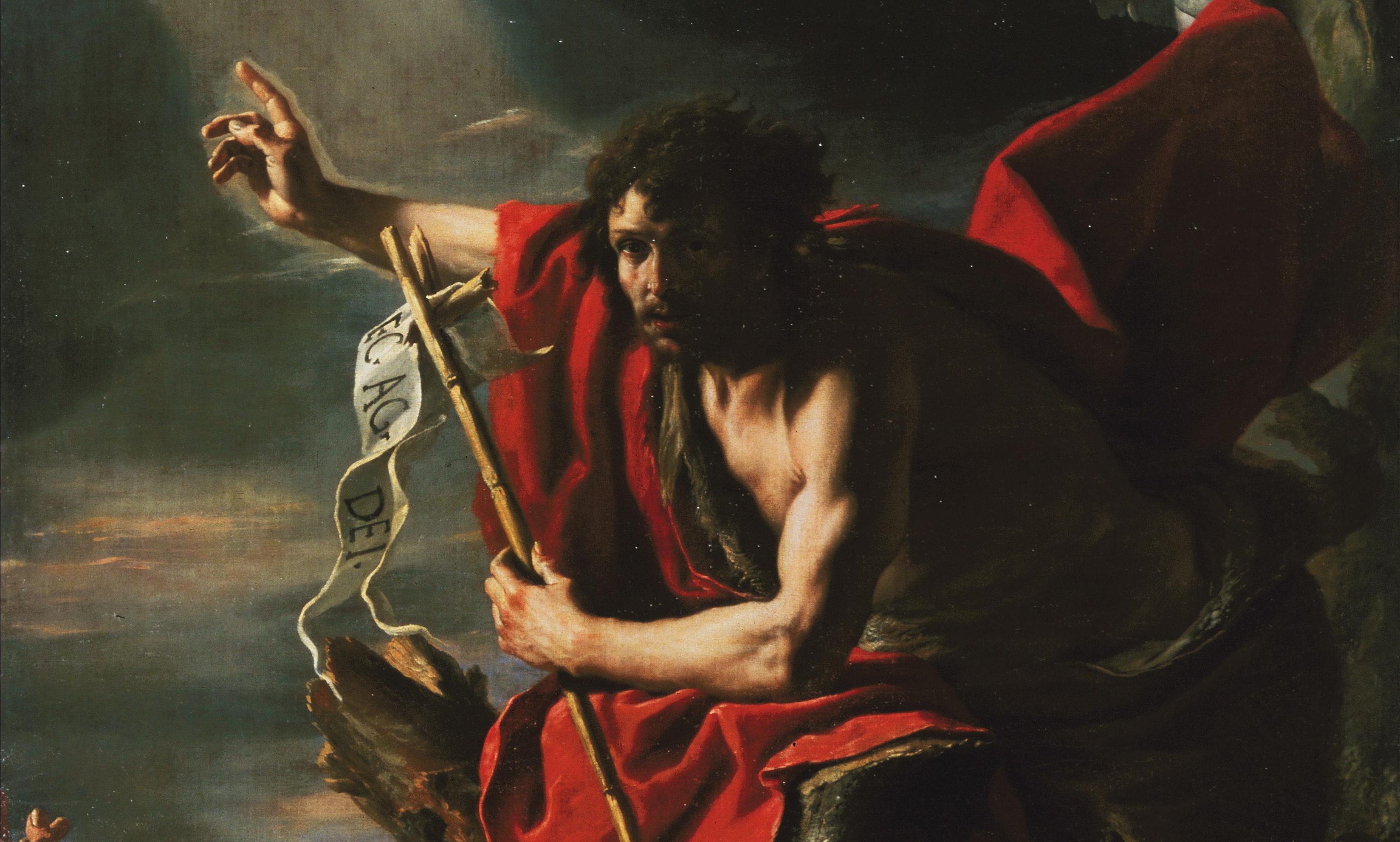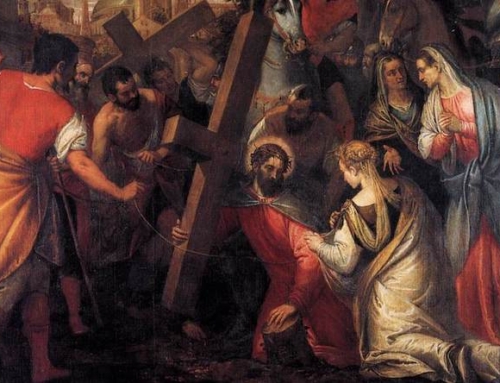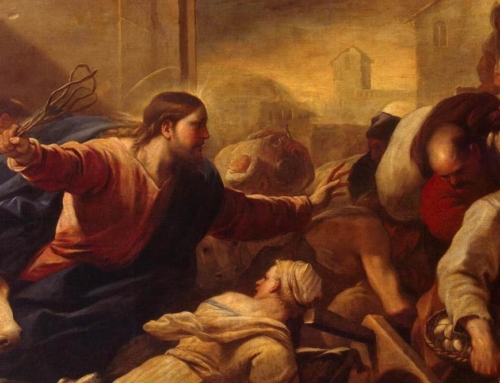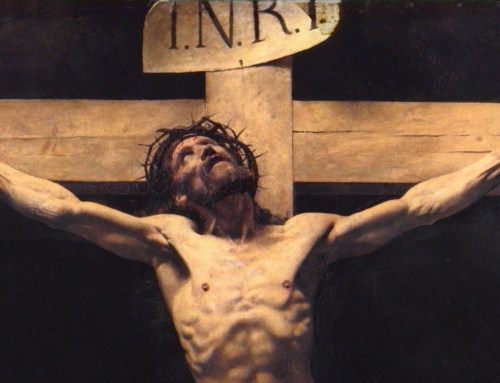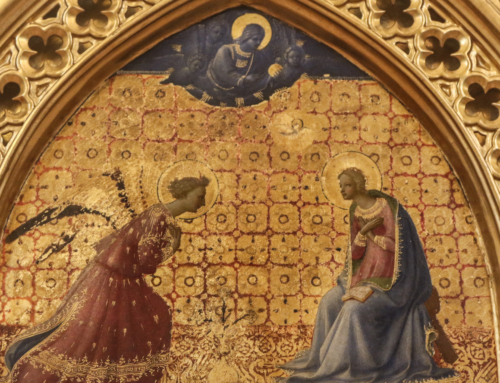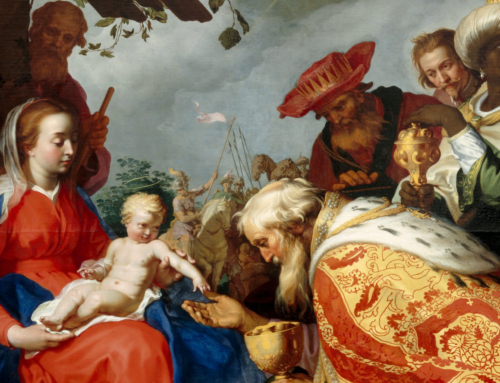Editor’s note: This is the second post in a series that discusses the five central doctrinal themes of the Protestant Reformation (the Five Solae) five hundred years after its beginning in 1517.
“Salvation is found in Christ alone,” asserts the final Sola of the Protestant Reformation, Solus Christus. Of course, salvation is found in Christ, and the Catholic Church has unceasingly taught just that. You need to look no farther than the Council of Trent and its Decree on Justification, the Church’s response to Protestantism, which includes this succinct and forceful affirmation:
If any one saith that men are just without the justice of Christ, whereby He merited for us to be justified;… let him be anathema. (Canon X)
So what is the Protestant claim of Solus Christus? Like the other Solae, it affirms something true and important, but at the same time it denies an important truth of Catholic doctrine. It denies the efficacy of the human mediation of Christ’s grace and salvation, especially the mediation of a priest in the sacraments. “Christ is the true and only mediator between God and man,” it insists, and thus it asserts that any human claim to mediation can only be superstitious or idolatrous.
Solus Christus is not without scriptural support. Jesus himself said, “I am the way, and the truth, and the life; no one comes to the Father, but by me” (John 14:6). St. Paul wrote that “there is one God, and there is one mediator between God and men, the man Christ Jesus” (1 Tim 2:5). Throughout the New Testament, it is clear that salvation comes from Christ, who became man in order to bring us to God; he is the one true mediator. The Protestant teaching of Solus Christus strongly affirms this by denying the possibility of any human action that can bring grace or salvation.
However, a more thorough exploration of Sacred Scripture reveals an image of mediation that is richer and more complex than the simple Solus Christus. For instance, preaching and giving testimony are themselves kinds of mediation by which salvation is brought to men: “For, ‘everyone who calls upon the name of the Lord will be saved.’ But how are men to call upon him in whom they have not believed? And how are they to believe in him of whom they have never heard? And how are they to hear without a preacher? And how can men preach unless they are sent?” (Rom 10:13-15). St. Paul describes preaching as the link connecting and mediating between the God who sends preachers and those who will call upon the name of the Lord and be saved.
Likewise, prayer is a mediation, as we stand as intercessors before God on the behalf of other men and women. “If anyone sees his brother sinning, if the sin is not deadly, he should pray to God and he will give him life” (1 Jn 5:16). And again: “The prayer of a righteous man has great power in its effects” (Jam 5:16).
Most notably, Christ himself appointed men to be mediators of his salvation and grace in a particular and special way through the sacraments. “He took bread, and when he had given thanks he broke it and gave it to them, saying, ‘This is my body which is given for you. Do this in remembrance of me’” (Luke 22:19). Christ gave his apostles a command and a power: to celebrate the Eucharist established at the Last Supper. On another occasion, he gave his apostles a different command and power, saying to them, “Whose sins you forgive are forgiven them, and whose sins you retain are retained” (John 20:23). And finally, he gave them the Great Commission, to go and bring all peoples to him in the sacrament of Baptism (see Matt 28:18-20).
And even in St. Paul’s First Letter to Timothy, in which he writes that “there is one mediator between God and men, the man Christ Jesus,” we find evidence of other mediation in the same chapter. St. Paul commands “that supplications, prayers, intercessions, and thanksgivings be made for all men” (1 Tim 2:1). So, some men are acting as intercessors and mediators in prayer for “all men.” Moreover, Paul identifies himself as “appointed a preacher and apostle,” as one who mediates the word of God in proclamation and testimony, and as one who mediates the salvation and forgiveness of God in the sacraments.
Thus it becomes evident that the interpretation of Solus Christus as denying the possibility of human mediation isn’t in accord with the whole of Scripture. Yet how are we to make sense of the claim that “there is one mediator between God and men, the man Christ Jesus”? It is without doubt true that no merely human work could ever hope to reach God and thus mediate between the human and the divine. But how is it possible to resolve this apparent tension found within Sacred Scripture, which seems to simultaneously appoint men as mediators and to assert the absolute uniqueness of Christ as mediator?
What is necessary is a more robust understanding of the Body of Christ. Christians are not members of the Body in the same way that citizens are members of the body politic, which is extrinsic and legal. No, Christians are members of the Body of Christ in a much deeper and more intimate manner. Grace is a participation in the divine life; it is deeply transformative of the soul as Christians are configured to Christ. Recall the parable of the vine and the branches; it is not simply a pious metaphor. We are truly grafted onto Christ and the sap of the true vine flows through every aspect of our lives. Our life becomes his, “for you have died, and your life is hidden with Christ in God” (Col 3:3). And therefore the fruit that we the branches bear is, in a real sense, the fruit that Christ the vine bears.
An appreciation for the depth and intimacy of participation in the Body of Christ resolves the apparent tension within Sacred Scripture between the many examples of mediation and the truth that there is “one mediator.” When a Christian preaches the Gospel, it is Christ’s preaching, for the individual participates in Christ’s mediation of the Good News to the world. When a Christian prays, it is Christ’s prayer to the Father, for the individual participates in the mediation of grace to the world. When a priest offers the Mass or absolves in confession, he is acting in persona Christi – in the person of Christ – making present the one sacrifice and mediation of Christ our high priest.
By preaching, by prayer, by his appointed priests and sacraments, Christ acts through the members of his body, whose participation in his life has configured them to him at the deepest levels of their being. Yes, Christ is the one true mediator. As St. John Paul II wrote, “No one, therefore, can enter into communion with God except through Christ, by the working of the Holy Spirit. Christ’s one, universal mediation, far from being an obstacle on the journey toward God, is the way established by God himself” (Redemptoris Missio 5). At the same time, all the baptized, and in a particularly profound way priests, are members of his body, and by virtue of their participation in the divine life of Christ, they participate in his mediation as mediators themselves. Through their actions, may the whole world be brought to the truth and the life that is Jesus Christ.
✠
Image: Mattia Preti, St. John the Baptist Preaching

